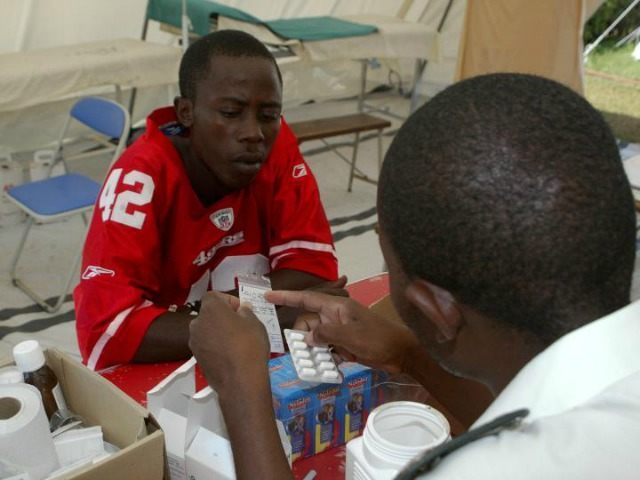A new study on typhoid fever, an infection spread through unsanitary food and water, and prominent in parts of Asia and Africa, has found that an antibiotic-resistant clone has begun to spread in southern Africa, threatening to reach epidemic levels.
CBS reports that the new strain, H58, developed in Asia between 25 and 30 years ago, but has begun to surface elsewhere due partly to the high frequency use of antibiotics, forcing the bacteria to evolve to resist the threat of antibiotics. The study, appearing in Nature magazine this week, tracked the spread of the strain through Kenya, Malawi, Tanzania, and South Africa. The authors conclude that there exists “an ongoing epidemic of H58 typhoid across countries in eastern and southern Africa.”
“There is a sense of urgency now,” said Gordon Dougan, one of the paper’s authors, about restraining the bacteria. Doctors in hospitals in affected areas, the BBC adds, have been forced “to use other, more expensive and less readily available antibiotics” to stop the bacteria, as the drugs usually used to cure those infected have stopped working as efficiently. BBC notes that 20,000 people die of typhoid a year.
While the World Health Organization describes typhoid as a disease more commonly found in “northern and western Africa,” the nations studied in the new paper are in southern and eastern Africa. A separate study found, for example, a hospital in Malawi in which the percentage of drug-resistant typhoid cases to total typhoid cases rose from 7% to 97% between 1998 to 2014.
Such a need for more expensive drugs could put a strain on already-struggling economies in Africa. As typhoid is already a disease that affects nations where populations are not guaranteed access to clean water and food, it is inherently a danger to more impoverished countries. CBS notes that typhoid “presents no direct threat to people living in the United States,” though travelers to affected regions must practice extra caution, and it is recommended they receive a typhoid vaccine before their trips. The vaccine is believed to work as efficiently against drug-resistant strains as the non-drug-resistant ones; it is only after a person contracts the disease that antibiotics no longer work with H58.
CBS reports that “symptoms include a high, sustained fever, weakness, stomach pains, headache and loss of appetite,” and about 20% of cases are lethal.
While the bacteria is not as deadly as other diseases that have plagued the developing world, the international medical community has received intense criticism in the past year for its response to the much more dangerous Ebola virus, which has taken hundreds of lives since an outbreak began in Guinea in February 2014. By August 2014, Doctors Without Borders condemned the international medical community’s response as “almost zero.” A UN report released on Monday noted that “it is still unclear to the panel why early warnings approximately from May through to July 2014 did not result in an effective and adequate response” and recommended a more unified international medical entity to react to similar outbreaks in the future.

COMMENTS
Please let us know if you're having issues with commenting.